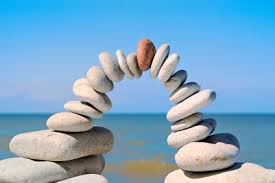Easing Anxiety & Stress with Meditation
Easing Anxiety and Stress with Meditation is a very important topic. Since we are all dealing with daily stress, its good to learn certain techniques on how to deal with what you are going through. Accept that you cannot control everything around you. Think about meditating, taking time out, so simply taking deep breaths.
Here’s an interesting article in The Khaleej Times that I thought I would share with you. It is from past research in earlier studies which still apply today.
Researchers found moderate evidence to support the use of mindfulness meditation to treat anxiety, mental stress, depression and pain. They used data from 47 earlier studies.
In an email to Reuters Health, Dr. Madhav Goyal who led the study at The Johns Hopkins University in Baltimore, wrote “Many people have the idea that meditation means just sitting quietly and doing nothing. That is not true. It is an active training of the mind to increase awareness, and different meditation programs approach this in different ways.”
Dr. Madhav Goyal and his colleagues wrote in JAMA Internal Medicine that meditation techniques emphasize mindfulness as well as concentration.
Mindfulness meditation is aimed at allowing the mind to pay attention to whatever thoughts enter it. This can be sounds in the environment, however, without becoming too focused on it.
Mantra meditation, on the other hand, involves focusing concentration on a particular word or sound.
Nationa Institutes of Health Research
According to the National Institutes of Health, in 2007, about 9% of people in the US reported meditating. About 1% said they use meditation as some sort of treatment or medicine.
Researchers, for their new report- searched several electronic databases that catalog medical research for trials that randomly assigned people with a certain condition— such as anxiety, depression or pain— to do meditation or another activity. These randomized controlled trials are considered the gold standard of medical research.
The researchers found 47 studies with over 3,500 participants that met their criteria. After combining the data, Dr Goyal said his team found between a 5 and 10% improvement in anxiety symptoms among people who took part in mindfulness meditation, compared to those who did another activity. There was also about a 10 to 20% improvement in symptoms of depression among those who practiced mindfulness meditation, compared to the other group.
Dr Goyal said, “This is similar to the effects that other studies have found for the use of antidepressants in similar populations. Clinicians should be prepared to talk with their patients about the role that meditation programs could have in addressing psychological stress, particularly when symptoms are mild.”
Harvard Medical School Comments
Dr. Allan Goroll, is a professor at Harvard Medical School and Massachusetts General Hospital in Boston. He wrote an editorial accompanying the new study, and told Reuters Health the analysis is an example of an area of much-needed scientific study, because many people make treatment decisions based on beliefs.
Dr Allan Goroll wrote; “People should remember that meditation was not conceived to treat any particular health problem, rather, it is a path we travel on to increase our awareness & gain insight into our lives. The best reason to meditate is to gain this insight. Improvements in health conditions are really a side benefit, and it’s best to think of them that way.”
So…turn off the TV and computer, put down your phone and clear your mind when meditating. According to the research, it can help you to relax!
Acupuncture Works Wonders for Depression
I just read about this new study that acupuncture can help for depression. I thinks its amazing and so interesting that I had to share the trial resuls from Plos medicine.
A new study shows that acupuncture is just as effective as counseling in patients with moderate to severe depression.
The randomized controlled trial revealed that both treatments offered a statistically significant reduction of symptoms when added to typical treatment in patients with recurring bouts of depression at three months.
The trial was led by Hugh MacPherson, Ph.D., University of York in the United Kingdom. The investigators of the trail said, “We have provided evidence that acupuncture versus usual care, and counseling versus usual care are both associated with a significant reduction in symptoms of depression in the short to medium term, and are not associated with serious adverse events.”
According to the researchers, up to 60% of patients with depression have an inadequate response to antidepressants, and 30% do not stick to their medication regimen. They also note that there is a growing patient demand for non-pharmacologic treatment options.
For the study, the investigators wanted to observe the clinical effectiveness of short sessions of either acupuncture or counseling compared with usual care for patients with moderate to severe depression in a primary care setting.
The randomized, controlled trial included 755 depressed patients who were randomly assigned to 1 of 3 study groups in a ratio of 2:2:1 to acupuncture plus usual care, counseling plus usual care, or usual care alone.
Study subjects received 12 weekly sessions of acupuncture plus usual care, 12 weekly sessions of counseling plus usual care, or usual care alone.
The results revealed that compared with standard care, there was a statistically significant reduction in mean depression scores at three months for acupuncture & counseling.
At 12 months, there was no significant difference between acupuncture and counseling compared with standard care.
The authors said, “To our knowledge, our study is the first to rigorously evaluate the clinical and economic impact of acupuncture & counseling for patients in primary care who are representative of those who continue to experience depression in primary care.”
They note that more research is needed to figure out the optimal treatment plan for acupuncture & counseling in patients with depression.
Hugh MacPherson comments, “Although these findings are encouraging, our study does not identify which aspects of acupuncture & counseling are likely to be most beneficial to patients, nor does it provide information about the effectiveness of acupuncture or counseling compared with usual care for patients with mild depression.”

